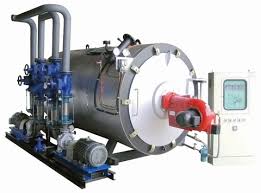
Oct . 08, 2024 22:34 Back to list
Oil Fired Hot Water Boiler for Efficient Heating Solutions in Residential and Commercial Spaces
Understanding Oil Fired Forced Hot Water Boilers
Oil fired forced hot water boilers are vital heating systems used in various residential and commercial settings, especially in areas where natural gas may not be readily available. These boilers utilize oil as a fuel source to generate hot water, ensuring efficient heating during colder months. This article explores the components, operation, benefits, and maintenance of oil fired forced hot water boilers.
Components of an Oil Fired Boiler
An oil fired forced hot water boiler consists of several key components that work together to provide heating. The primary parts include the burner, heat exchanger, and water tank. The burner atomizes the oil and ignites it, producing heat. This heat is transferred to the water via the heat exchanger, raising the water temperature. The system also includes pumps to circulate the hot water through the pipes to radiators or heating elements throughout the building.
How It Works
The operation of an oil fired forced hot water boiler begins with the filling of the oil tank. Heating oil is drawn from the tank, where it is filtered and pumped to the burner. The burner mixes the oil with air and ignites it, resulting in high temperatures. As water circulates through the heat exchanger, it absorbs this heat. The now-heated water is pumped through the distribution system, providing warmth to various spaces.
One notable feature of forced hot water systems is their efficiency in heat distribution. As water retains heat longer than air, it provides a consistent and comfortable indoor environment. Moreover, these systems can be easily integrated with thermostats for automated temperature control, enhancing energy efficiency.
oil fired forced hot water boiler

Benefits of Oil Fired Boilers
Oil fired forced hot water boilers offer several advantages. First, they provide reliable heating, crucial in regions with harsh winters. Unlike natural gas systems, which can be affected by supply disruptions, oil can be stored on-site, ensuring a continuous supply.
Additionally, oil fired boilers are known for their longevity and durability. With proper maintenance, these systems can last 20 years or more, making them a worthwhile investment.
Maintenance Considerations
Regular maintenance is essential for the optimal performance of oil fired boilers. Homeowners should schedule annual inspections by a qualified technician to ensure that the burner, heat exchanger, and overall system are in good working order. This includes cleaning the burner and checking for any potential leaks, which can lead to safety hazards.
In conclusion, oil fired forced hot water boilers are efficient heating solutions that provide reliable warmth in various settings. Their robust design and effective heat distribution make them a popular choice among homeowners and businesses. With proper maintenance and operation, these systems can deliver comfort and efficiency for many years, making them a valuable addition to any heating infrastructure.
-
High-Efficiency Commercial Oil Fired Steam Boiler for Industry
NewsJul.30,2025
-
High-Efficiency Biomass Fired Thermal Oil Boiler Solutions
NewsJul.30,2025
-
High Efficiency Gas Fired Thermal Oil Boiler for Industrial Heating
NewsJul.29,2025
-
High-Efficiency Gas Fired Hot Water Boiler for Sale – Reliable & Affordable
NewsJul.29,2025
-
High Efficiency Biomass Fired Hot Water Boiler for Industrial and Commercial Use
NewsJul.29,2025
-
High-Efficiency Biomass Fired Hot Water Boiler for Industrial Use
NewsJul.28,2025
Related PRODUCTS






















